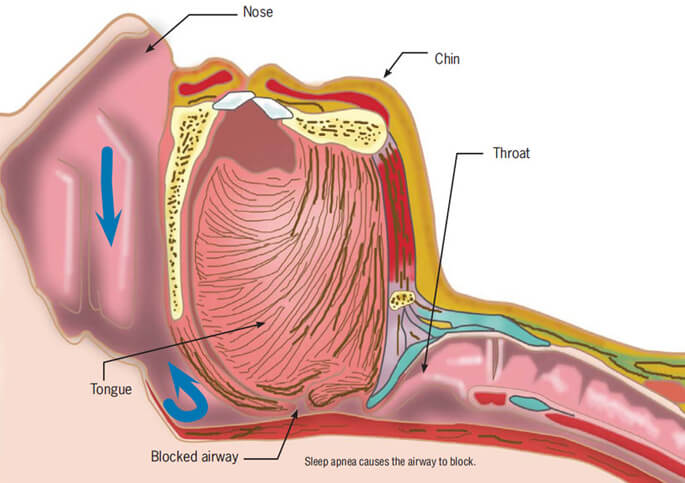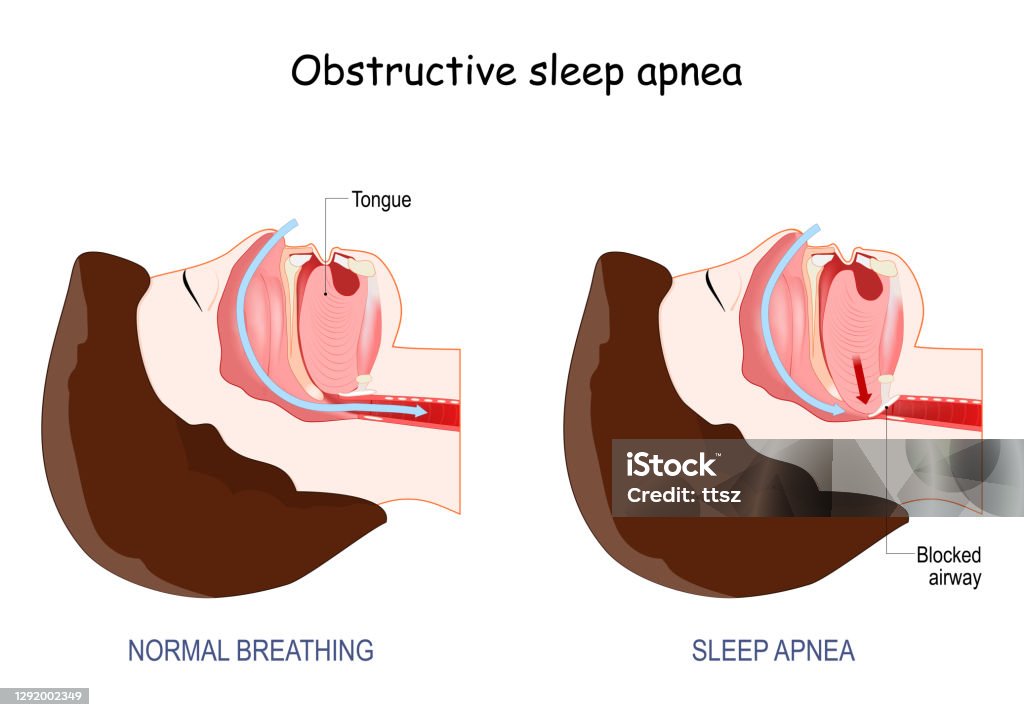Sleep Apnea
Overview
Obstructive sleep apnea is a common disorder in which the patient has one or more pauses in breathing or shallow breaths while sleeping. People who have obstructive sleep apnea stop breathing repeatedly during sleep because the airway collapses. As a result, air is prevented from getting into the lungs & reduces the oxygen in the blood.
In many cases, an apnea, or temporary pause in breathing, is caused by the tissue in the back of the throat collapsing. The muscles of the upper airway relax when you fall asleep. If you sleep on your back, gravity can cause the tongue to fall back. This narrows the airway, which reduces the amount of air that can reach your lungs. The narrowed airway causes snoring by making the tissue in back of the throat vibrate as you breathe. This decreased flow may stress the heart, the body and raises blood pressure. This condition may worsen glucose control and insulin resistance and lead to blood sugar imbalance.


Overview
Sleep apnea can make you wake up in the morning feeling tired or unrefreshed even though you have had a full night of sleep, headaches, lack of energy and chronic aches and pains. During the day, you may feel fatigued, have difficulty concentrating or you may even unintentionally fall asleep. This is because your body is waking up numerous times throughout the night, even though you might not be conscious of each awakening. The lack of oxygen your body receives can have negative long-term consequences for your health.
Clinical studies have shown a link between the following medical conditions and obstructive sleep apnea (OSA). This includes:
- High Blood Pressure
- Stroke
- Type II Diabetes
- Chronic Pain Syndrome
- Insomnia
- Women who have gone through menopause.
There are many people with sleep apnea who have not been diagnosed or received treatment. Obstructive sleep apnea can diagnosed using an in-lab sleep study or a home sleep test
Symptoms
The symptom most commonly associated with sleep apnea is snoring. Not everyone who snores has sleep apnea. Also some people without snoring can also have sleep apnea. The other symptoms of sleep apnea include:
- Daytime fatigue:
- Loud or frequent snoring
- Choking or gasping while you sleep
- Pauses in breathing
- Morning headaches
- Excessive daytime sleepiness and fatigue
- Insomnia due to difficulty staying asleep
- Waking up with dry mouth or a sore throat
- Frequent need to urinate during the night
- Trouble concentrating
- Memory or learning problems
- Moodiness, irritability or depression
- Teeth grinding
- Night time arm and leg movements
- Sleepiness while watching TV or reading


Risk Factors
Excess weight – An adult with a BMI of 25 or higher is considered to be overweight. Your risk of sleep apnea increases with the amount of excess body weight.
Large neck size (>17 inches for men, > 16 inches for women) – A large neck will have more fatty tissue that can block your airway.
Older age (40+ for men, 50+ for women) – Sleep apnea occurs more often in older adults, especially people older than 60.
Being male – Men have twice the risk having sleep apnea compared to women
Smoker – Smokers have a higher risk of sleep apnea
Hypertensive – High blood pressure is very common in people with sleep apnea
Family history – Sleep apnea can appear more often among family members. This may be a result of either inherited traits or common lifestyles.
Medical complications:
- High blood pressure
- Heart failure
- Stroke
- Obesity
- Diabetes
- Increase risk of having work related or driving accidents
Emotional complications:
- Mood swings
- Irritability
- Poor memory, learning problems or inability to concentrate
- Personality changes
- Panic attacks
